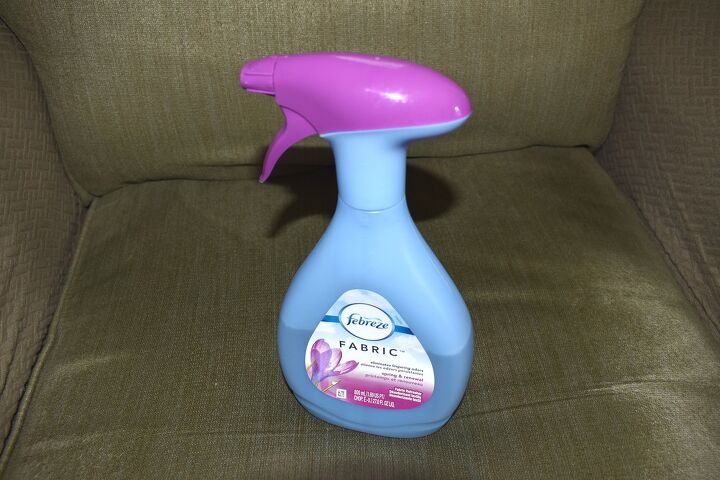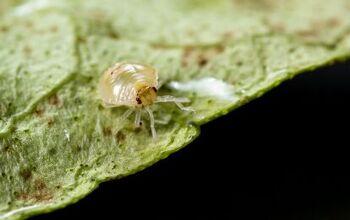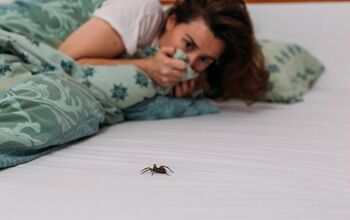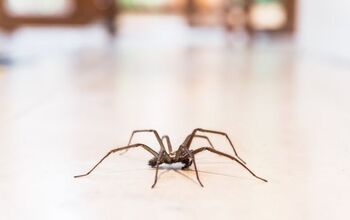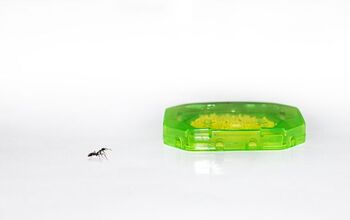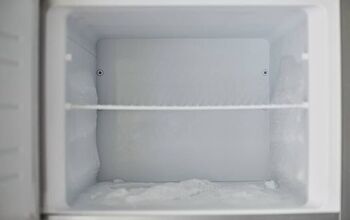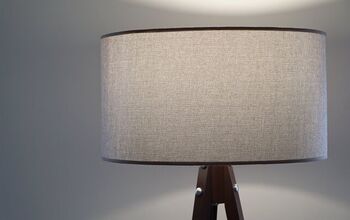Will Febreze Kill A Spider? (Find Out Now!)

Since 1996, Febreze has been a classic odor-killer that has been used on a wide variety of items including carpets, theater costumes, car seats, jackets, and gym shoes. It is a versatile spray that is found in cabinets all over America. One of the more surprising rumors we’ve heard about Febreze is that it kills spiders. Is this fact or fiction?
It’s a fact! Febreze contains the active ingredient, Hydroxypropyl beta-cyclodextrin, which is what kills odors. It turns out that this ingredient can also kill spiders on contact. Unlike pesticides, Febreze is considered non-toxic and it also smells much better than the average pest control. However, it will not leave a lasting residue behind and it won’t kill spider eggs.
Here are some fun facts about Febreze and spiders.
Do You Need Pest Control Services?
Get free, zero-commitment quotes from pro contractors near you.

How Does Febreze work?
Unlike perfumes and many air fresheners that merely mask a smell, Febreze eliminates odors. Thoughtco.com goes into the science of this and explains that the stink molecule is still there, but it will no longer bind to humans’ odor receptors. What you can’t smell, won’t hurt you! Febreze® Sanitizing Fabric Refresher not only eliminates odors but will also kill 99.9% of bacteria and prevent mold growth. Its cleaning effect can last for up to 2 weeks.
The Pros and Cons of Killing Spiders with Febreze
Most house spiders are usually innocuous and will only bite if provoked. However, there are some venomous spiders, the most common being the brown recluse, black widow, and the hobo spider. To identify different types of spiders and find out which ones may be venomous, you can check out this guide. If you are not sure if the spider is harmful or helpful, you may have to take care of it before you have time to find out!
Febreze can be an effective way to kill a spider that you find running through your hall. The same ingredient that kills odors can also kill spiders on contact. However, you may need to look for options outside of Febreze if you are looking for a long-term solution. The pluses of using Febreze as a bug killer are:
- It kills spiders (and many other insects) quickly on contact.
- It is not flammable like other sprays.
- It smells much better than your average pest control.
- It is non-toxic.
- And an added bonus is that it can kill bacteria as you spray!
Some of the shortcomings when using Febreze as a bug spray are:
- It will not kill spider eggs, since the spray cannot penetrate the egg sac.
- It does not have a residual effect to kill or repel bugs long-term.
How Safe is Febreze to use?
Febreze is considered a non-toxic spray, however, you will not want to get it in your eyes or mouth. If you spray a lot of Febreze in a small area, you may notice that it will irritate your eyes, throat, or nose. You may also have temporary breathing problems.
Most contact with Febreze can be resolved by washing your hands and/or eyes and should not need the attention of a doctor. If symptoms persist, you can call your doctor for more specific advice.
As with any household cleaners, you should never leave Febreze in reach of pets or children.
Pet safety
Veterinary toxicology experts at ASPCA deem Febreze fabric freshener products safe to use in a household with pets. Of course, this doesn’t mean that you should leave the spray in reach of pets, but accidental contact with a wet spray line should not cause severe problems. ASPCA would anticipate at most a mild skin irritation or mild stomach upset if your pet came in contact with the spray. You can talk with your vet if your pet is showing any worrisome signs.
How to Get Rid of Spiders and Keep Them Away
Many spiders are not harmful to humans and can even help you keep other pests at bay. Still, no one wants a spider infestation inside their home, especially if you live in an area where venomous spiders are common.
You can kill a spider quickly with Febreze, but it leaves no lasting residue for long-term pest control. Here are some ways you can keep the spider population under control in and around your home:
- Vacuum your entire home on a regular basis.
- Use spider traps to eliminate indoor pests. If you find traps in one area tend to fill faster than others, this is a good indicator of a problem area.
- Certain scents can deter spiders. By using cleaning products and furnisher polish with a lemon scent you can prevent spiders from taking up residence in an empty corner. Other scents that spiders dislike are mint, lavender, vinegar, and citrus.
- Limit your outdoor light usage. While spiders like dark places, flying insects (a food source for spiders) will swarm around the light. Consider using yellow lights, which do not attract insects.
- Keep any trash cans covered.
- Seal any cracks around doors, windows, and baseboards to prevent spiders from entering your home.
- Apply spider repellant and pest control spray to problem areas. If you have children or pets and you are using a bug spray indoors, you should consider using a non-toxic spray.
Do You Need Pest Control Services?
Get free, zero-commitment quotes from pro contractors near you.

Related Questions
Will spiders crawl over you at night?
Unlike bed bugs and a few other creepy crawlies, spiders don’t hunt you down at night to suck your blood. Spiders do not feed on humans and generally would prefer to run away rather than attack. If a spider does crawl over you in the night, it is most likely a coincidental passage and usually will not result in a bite.
Can I use Febreze on hard surfaces?
Febreze was created to be used only on soft fabrics and materials such as bedding, couches, curtains, coats, and shoes. The P&G brand does not recommend using the spray to clean hard surfaces as it has not been tested for this purpose.
Do spiders live in wet or dry areas?
A spider’s preferred habitat will depend on the type of spider. Some spiders look for wet places to take up their abode and will choose basements, bathrooms, or crawl spaces that tend to be damper in nature. However, some spiders like dry spaces that are close to a food source. You may find these spiders in the corners of ceilings or behind sofas and furniture.

Alex Praytor is a native Texan who got her degree in English Literature and decided to travel the globe. She finds the architecture and design of homes across cultures fascinating. In her spare time, she visits coffee shops with her family and creates projects for their own home. Alex enjoys sharing tips on how to keep repairs up to date while turning a house into a home.
More by Alex Praytor



